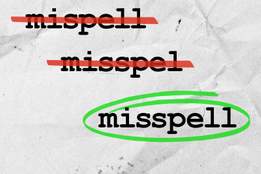-
noun
-
verb
-
noun
2
-
Synonyms
-
Example Sentences
-
Word History
-
Phrases Containing
-
Related Articles
-
Entries Near
-
- To save this word, you'll need to log in.
Synonyms
Examples of privilege in a Sentence
 Barbara Dafoe Whitehead, Commonweal, 2 Dec. 2005
The oldest of the students, she had become a confidante of Fern's and she alone was allowed to call her by her first name. It was not a privilege the others coveted.
—
Barbara Dafoe Whitehead, Commonweal, 2 Dec. 2005
The oldest of the students, she had become a confidante of Fern's and she alone was allowed to call her by her first name. It was not a privilege the others coveted.
— Edward P. Jones, The Known World, 2003
But the two were grown in the same petri dish of power, prep school and privilege.
—
Edward P. Jones, The Known World, 2003
But the two were grown in the same petri dish of power, prep school and privilege.
— Howard Fineman, Newsweek, 16 Oct. 2000
Good health care should be a right and not a privilege.
We had the privilege of being invited to the party.
I had the privilege of knowing your grandfather.
He lived a life of wealth and privilege.
Verb
The new tax laws unfairly privilege the rich.
only professionals who meet the education and experience requirements set by law are privileged to use the title “interior designer” in Oklahoma
Howard Fineman, Newsweek, 16 Oct. 2000
Good health care should be a right and not a privilege.
We had the privilege of being invited to the party.
I had the privilege of knowing your grandfather.
He lived a life of wealth and privilege.
Verb
The new tax laws unfairly privilege the rich.
only professionals who meet the education and experience requirements set by law are privileged to use the title “interior designer” in Oklahoma
 Bethy Squires, Vulture, 6 Nov. 2024
Cameron Collins, who at 19 years old voted for the first time, also sees his vote as a privilege.
—
Bethy Squires, Vulture, 6 Nov. 2024
Cameron Collins, who at 19 years old voted for the first time, also sees his vote as a privilege.
— Nushrat Rahman, Detroit Free Press, 5 Nov. 2024
Nushrat Rahman, Detroit Free Press, 5 Nov. 2024
 Pablo Larios, Artforum, 1 Nov. 2024
Concert hall designers often pursue a different strategy, privileging intimacy and approximate egalitarianism over the architectural expression of status.
—
Pablo Larios, Artforum, 1 Nov. 2024
Concert hall designers often pursue a different strategy, privileging intimacy and approximate egalitarianism over the architectural expression of status.
— Justin Davidson, Curbed, 16 Oct. 2024
See all Example Sentences for privilege
Justin Davidson, Curbed, 16 Oct. 2024
See all Example Sentences for privilege 

Word History
Noun and Verb
Middle English, from Anglo-French, from Latin privilegium law for or against a private person, from privus private + leg-, lex law
Noun
before the 12th century, in the meaning defined above
Verb
14th century, in the meaning defined at sense 1
Phrases Containing privilege
Articles Related to privilege
Dictionary Entries Near privilege
Cite this Entry
“Privilege.” Merriam-Webster.com Dictionary, Merriam-Webster, https://www.merriam-webster.com/dictionary/privilege. Accessed 21 Nov. 2024.
Kids Definition
privilege
1 of 2 noun
privilege
2 of 2 verbLegal Definition
privilege
nouncalled also conditional privilege
Note: Executive privilege is based on the separation of powers doctrine. In United States v. Nixon, the Supreme Court held that this privilege is not absolute and that without a claim of a need to protect military, diplomatic, or national security secrets, the need for evidence in a criminal trial will outweigh a general assertion of executive privilege.
called also informer's privilege
called also journalist's privilege
 National Law Journal
National Law JournalNoun
Latin privilegium law affecting a specific person, special right, from privus private + leg-, lex law
More from Merriam-Webster on privilege
Nglish: Translation of privilege for Spanish Speakers
Britannica English: Translation of privilege for Arabic Speakers












Share